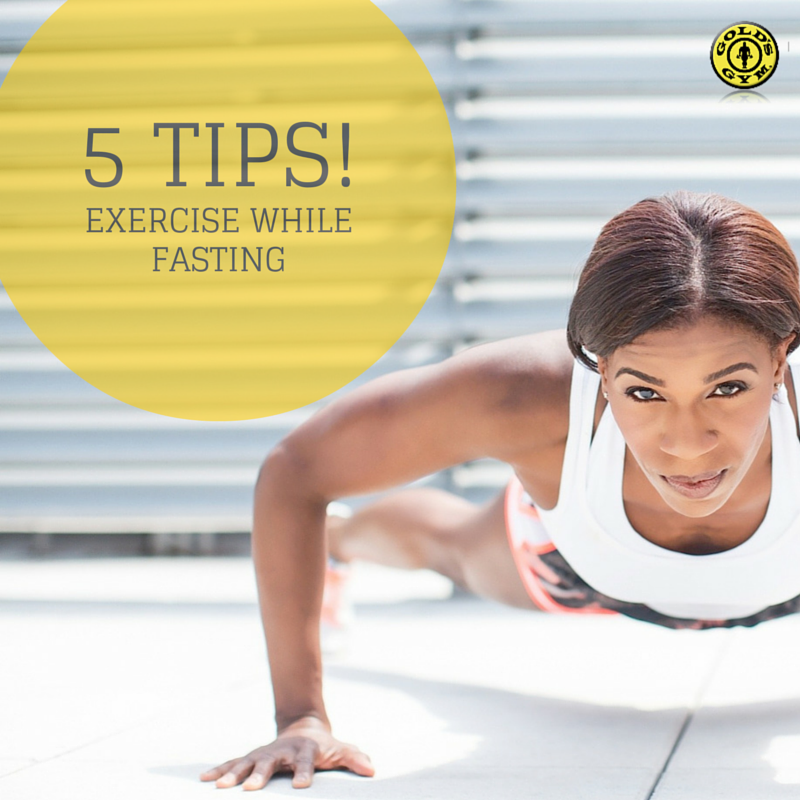5 Tips To Exercise Safely and Comfortably While Fasting
Even so, there are some rules that you must learn before you hit the gym while fasting. Going without food and water for more than 12 hours and your body’s endurance ability is weakening. This means that you are not recommended to do certain kind of exercise.
1. Adjust Your Workout Type / Weight Load

For better and optimal workout during Ramadan, change your workout regimen. If you normally train with heavy weight, try lower the load when you are fasting. Convert to low intensity training (such as moderate exercise, jogging, cycling) or moderate intensity training (such as aerobic exercise, brisk walking). Don’t push yourself; your body is too weak for going out of food and water for more than 12 hours. Extreme exercise will draw out a lot of energy and you more likely to become dehydrated. If this happens then you will get exhausted and cannot carry out everyday activities optimally. In fact, you might want to break your fast and this will significantly disrupt your fast.
2. When to Consume Protein?
If you were accustomed to take protein several times in a day, this would be inapplicable during fasting. However, in order to meet your protein requirements and maintain muscle mass, make sure you have protein in your meals during suhoor and iftar. High protein foods are absorbed more slowly, lead to greater fullness and appetite control.
3. Suhoor = Carbo-loading
For those who insisted to exercise while fasting, never ever skip suhoor, because it will give you energy to do your daily activities while fasting. Make sure carbohydrate should always be in your suhoor menu; it will provide energy.
4. Make Your Exercise Schedule
Not only paying more attention to the type of exercise that you will be doing, it’s also important to do it at the right time. The best time to exercise is 30 – 60 minutes before Iftar. Because it’s close to Iftar time, you can immediately restore the energy and body ion back as soon as Iftar is announced. This routine will help you avoid hypoglycemia (low blood sugar level).
5. Keep Your ION Intake = Successful Fasting
Gold's Gym Mall Ciputra | Gold's Gym Mall of Indonesia | Gold's Gym Thamrin City | Gold's Gym Cilandak Town Square | Gold's Gym Baywalk Mall Pluit | Gold's Gym Kalibata City Mall | Gold's Gym Braga Citywalk | Gold's Gym Cihampelas Walk | Gold's Gym Summarecon Mall Serpong | Gold's Gym Mall @ Alam Sutera | Gold's Gym Bintaro X-change | Gold's Gym The Breeze BSD | Gold's Gym Grand City Surabaya | Gold's Gym Surabaya Town Square | Gold's Gym Grand Metropolitan Bekasi





